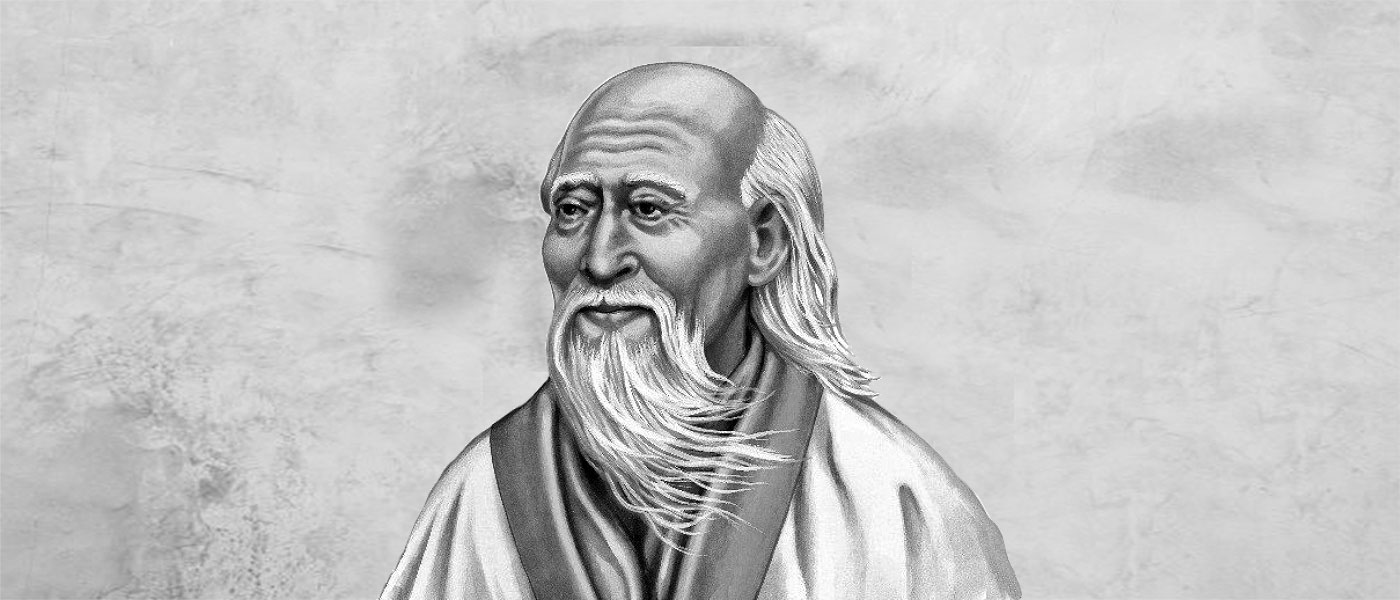The Royal Commission has forced us to ask, what is business good for?

The Royal Commission has forced us to ask, what is business good for?
Opinion + AnalysisBusiness + Leadership
BY The Ethics Alliance The Ethics Centre 13 AUG 2018
AMP Capital was applauded last year when it committed to selling $600 million worth of shares that did not meet its ethical guidelines. However, barely a year after announcing it was getting rid of its direct and indirect interests in tobacco and landmines, AMP was itself ejected into a basket of “untouchables”.
Australian Ethical announced in May it was divesting itself of AMP shares in the wake of searing revelations from the Financial Services Royal Commission.
Billions of dollars were wiped from the value of AMP after the public and investors discovered the wealth manager charged “fees for no service” and steered people into investments that rewarded their financial planners, at the expense of the clients.
Head of ethics research at Australian Ethical, Dr Stuart Palmer, says there were a number of reasons behind the decision to divest, “… but specifically, a senior decision made within the financial planning business to charge clients fees for services they weren’t receiving. They knew it was wrong, they knew it was illegal.
“There were people in the business saying we need to stop doing this, and they kept doing it at a senior level”, he says.
The Royal Commission into Financial Services has been exposing the rot eating away at some of our biggest and most powerful corporations and has reenergised an ongoing debate about what is the actual purpose of business and who it serves.
Palmer says legal cases in the US established shareholder primacy a century ago, with the primary responsibility of business interpreted as creating profits for shareholders.
“Since then, and before then, there has been a debate about whether that is right, whether there are other ways of thinking about corporations having independent interests and responsibilities to all their stakeholders, including shareholders, but also employees, customers, suppliers and society”, says Palmer.
“None is necessarily dominant over the others, but they need to be balanced in the interests of all.”
This discussion about the role of the corporation is being weighed up at all levels, including by the chairman of NAB, Ken Henry, who delivered a speech in March saying that it was not enough for companies to use the “pursuit of profit” to explain away their contribution to negative consequences, such as greenhouse gas emissions and other forms of pollution.
“If that’s the best we can do, then we shouldn’t wonder that we find it so difficult to occupy positions of trust and respect in society. Neither should we wonder that politicians of all political colours have such an uneasy relationship with us”, he told a gathering of the Australian Institute of Company Directors.
This was a debate that the Commonwealth Bank non-executive director, Harrison Young, was alluding to when he wrote last year, “banks should not be profit-maximising institutions. They have duties to the community that oblige them to forego a certain amount of upside”.
Judith Fox, the CEO of the Australian Shareholders Association, says she is aware of increasing numbers of companies and boards having this discussion.
“I’m seeing a lot of conversations that ultimately are all about how something needs to change in the way we operate”, she says.
“I think we are one of those transition periods where there has been a social norm that the purpose of a company is shareholder return and that has been accepted in markets worldwide for four decades”, she says, adding the realisation that companies should stand for more than just profits may come as a surprise to people whose knowledge of economics does not extend further back than US economist Milton Friedman’s pronouncement in 1962 that there is only one social responsibility of business and that is to make money.
Friedman wrote in Capitalism and Freedom:
“There is one and only one social responsibility of business – to use its resources and engage in activities designed to increase its profits so long as it stays within the rules of the game, which is to say, engages in open and free competition without deception or fraud.”
Fox says the current debate about the role of the corporation is a return to the concept, popular in the 1930s – that business had a social role to play as well.
Professor of Human Rights Law at Sydney University, David Kinley, agrees that many people’s attitudes are formed by what they have experienced in the past 20 years.
“It is what they have seen since the 80s, which has been a long – until 2008 [the start of the Global Financial crisis] – largely uninterrupted boom period.”
Kinley says Scottish economist and philosopher Adam Smith would be horrified to see the societal cost of rampant free marketeers.
Smith had written in The Wealth of Nations, nearly 250 years ago:
“… that individual acts of economic self-interest combine, through the ‘invisible hand’ of market forces, to further the best interests of society at large”.
Says Kinley, “So, he certainly would be turning in his grave to see all this wealth, so much of it is now concentrated in the hands of the few. Yes, we are better off than we were 200 years ago. Unquestionably. But by God, it’s been at a big cost to the notions of equity and fairness.
“And [investor] Warren Buffett says often – and he is the second richest man in the world – he said he is amazed there are not more people with pitchforks heading for the rich like him because he can’t see how they don’t appreciate this appalling inequality.”
Kinley, author of Necessary Evil: How to Fix Finance by Saving Human Rights, says he is not advocating some sort of Socialist revolution, but remaking the “financial, commercial, corporate neoliberal system that we now have one that works better for people as a whole”.
“If you don’t do that, you have a bubbling up of disquiet, of resentment, that no matter what happens – even things like the global financial crisis – the rich, the powerful, the banking, the financial system, they sail through it, on the back of public funds that bailed them out because they had to be saved. When people ordinary people look at that, they say, ‘How is that fair?’.
“So you get the reaction of, ‘Well, let’s vote in somebody who is willing to drain the swamp, you know, shake up the area and I don’t care if he’s mad or narcissistic or a nincompoop. You put him in there in the White House and just see what happens.’
“These sorts of reactions are almost desperation. I don’t think they are logical, I don’t think they are at all laudable, but you see why people are doing it.”
While there is evidence ethical investments outperform the average large-cap Australian share funds over three, five and 10 year time horizons, Kinley maintains corporations and their executives should be ethical because it is the right thing to do, not because it might make them money.
“What I would suggest what all of us want to do in the morning, truly, is to stand in front of the mirror as you’re brushing your teeth and say, ‘I’m proud of what I do or at least I can see why I do what I do and it is something that is worthwhile’.
“You don’t want to look in the mirror and think, ‘Oh I’m making a lot of dosh, but Geez it is dodgy’.”

This article was originally written for The Ethics Alliance. Find out more about this corporate membership program. Already a member? Log in to the membership portal for more content and tools here.
Ethics in your inbox.
Get the latest inspiration, intelligence, events & more.
By signing up you agree to our privacy policy
You might be interested in…
Opinion + Analysis
Business + Leadership
Roshni Hegerman on creativity and constructing an empowered culture
Opinion + Analysis
Business + Leadership, Politics + Human Rights
Vaccination guidelines for businesses
Opinion + Analysis
Business + Leadership
Is employee surveillance creepy or clever?
Opinion + Analysis
Business + Leadership
Sell out, burn out. Decisions that won’t let you sleep at night
BY The Ethics Alliance
The Ethics Alliance is a community of organisations sharing insights and learning together, to find a better way of doing business. The Alliance is an initiative of The Ethics Centre.
BY The Ethics Centre
The Ethics Centre is a not-for-profit organisation developing innovative programs, services and experiences, designed to bring ethics to the centre of professional and personal life.
Free markets must beware creeping breakdown in legitimacy

Free markets must beware creeping breakdown in legitimacy
Opinion + AnalysisPolitics + Human RightsRelationships
BY Simon Longstaff 2 AUG 2018
This article was written for, and first published on the Australian Financial Review.
This much we know: a blistering series of scandals has led to a profound loss of trust – not just in Australia but across the developed world. Consequently, the issue of trust has become a hot topic – a new staple item on meeting agendas of cabinets, boards, conferences, etc.
However, what if the spotlight being shone on the topic of trust is blinding us so that we fail to see a far greater risk lurking in the shadows – the potential loss of legitimacy?
Creating Transparency
The Ethics Centre has just published a paper that raises this possibility and sounds a warning that should be heeded by those of us who believe in the virtues of the market economy. We do not argue that trust is unimportant. Instead, we make the case that while individuals and institutions can (and do) survive a loss of trust, they rarely (if ever) survive a loss of legitimacy.
“We do not argue that trust is unimportant. Instead, we make the case that while individuals and institutions can (and do) survive a loss of trust, they rarely (if ever) survive a loss of legitimacy.”
At the core of our argument is a simple truth of economics. A reduction in trust can be compensated for by an increase in the “deadweight” costs of surveillance and enforcement. The classic case is the making of agreements. A high trust context can see agreements made on the basis of a low-cost handshake (or its equivalent). Low trust contexts are burdened with the high costs of detailed contracts, enforcement provisions, litigation, etc.
The Definition
Bearing this in mind, we distinguish between the concepts of trust and legitimacy according to the following definitions:
Legitimacy is a recognised and well-founded right to claim a certain status, role or function.
Trust is a belief that a person or institution will perform their role or function in accordance with its obligations or where not bound by duty, in a predictable manner – often in accordance with its interests.
The less formal distinction is as follows: where low trust can be compensated for by a higher degree of checks and balances (deadweight costs), a loss of legitimacy cannot be compensated for at any cost.
Making The Case
Now, if you accept our argument that there is a difference between trust and legitimacy and that a loss of the latter is usually fatal, it soon becomes clear that some of our institutions are at grave risk. We see the early signs in a number of areas. In politics, it is not only political parties and politicians that risk losing legitimacy – it is the system of representative liberal democracy that is being called into question.
As the Lowy Institute has reported, a growing number of younger Australians doubt the capacity of democracy to respond to the challenges of modern life. In economics, there is growing scepticism about the legitimacy of an international economic order. Especially when the focus shifts to free trade and the operation of free markets. We see both trends converging in movements (sometimes dismissed and derided as mere populism) that are reshaping the political and economic landscapes in Europe, North America, Central America and at home.
The great risk in this is that each and every part of the political and economic ecosystem becomes tarred by the same brush – with the spiral of decline sucking in all…the good, the bad and the indifferent…without distinction.
Our Role
For its part, The Ethics Centre has a long history of calling attention to the ethical underpinnings of the free market…recalling that Adam Smith championed markets as the means by which to bring prosperity to all (and not just a few). We (again) make the case for free markets in this latest paper – but go one step further by outlining some core principles that we think should be adopted by corporations if they are to help maintain the legitimacy of the system upon which they ultimately depend.
At one level, the headline principles are deceptively simple: respect people, do no harm, be responsible and be transparent and honest. However, rather than simply state self-evident pieties, we have tied these principles back to the underlying concept of free markets as tools for increasing the stock of common good. These tools and mechanisms can only function, as intended, if participants do not lie, cheat or use their power oppressively.
“Businesses are struggling to develop enabling connections with communities. Their efforts are embedded in conversations about trust, social licence, shared value and so on.”
Businesses are struggling to develop enabling connections with communities. Their efforts are embedded in conversations about trust, social licence, shared value and so on. There are major programs to increase transparency – often as an alternative to trust (which makes transparency unnecessary). We argue that the problem with all of these efforts is that they fail to address the larger problem of a system whose parts are progressively undermining the legitimacy of the whole.
The good news is that the unravelling is reversible and that some fairly straightforward measures can be applied, but only if we rediscover the purpose of the free market and the economic actors that it sustains – for the good of all.
Visit https://ethics.org.au/trust-and-legitimacy/ to download a copy of the Trust, Legitimacy and the Ethical Foundations of the Market Economy report.
Ethics in your inbox.
Get the latest inspiration, intelligence, events & more.
By signing up you agree to our privacy policy
You might be interested in…
Explainer
Relationships
Ethics Explainer: Epistemology
Explainer
Relationships
Ethics Explainer: Perfection
Big thinker
Relationships
Big Thinker: Tyson Yunkaporta
Opinion + Analysis
Politics + Human Rights
The limits of ethical protest on university campuses
BY Simon Longstaff
Simon Longstaff began his working life on Groote Eylandt in the Northern Territory of Australia. He is proud of his kinship ties to the Anindilyakwa people. After a period studying law in Sydney and teaching in Tasmania, he pursued postgraduate studies as a Member of Magdalene College, Cambridge. In 1991, Simon commenced his work as the first Executive Director of The Ethics Centre. In 2013, he was made an officer of the Order of Australia (AO) for “distinguished service to the community through the promotion of ethical standards in governance and business, to improving corporate responsibility, and to philosophy.” Simon is an Adjunct Professor of the Australian Graduate School of Management at UNSW, a Fellow of CPA Australia, the Royal Society of NSW and the Australian Risk Policy Institute.
How to help your kid flex their ethical muscle

How to help your kid flex their ethical muscle
Opinion + AnalysisRelationships
BY Victoria Whitaker The Ethics Centre 24 JUL 2018
Kids can be cruel. When they are arbitrarily mean to their own friends, ethical reflection can help. Victoria Whitaker talks us through building your child’s ethical muscle in testing times.
My daughter came home to me in tears last night. She shuddered, eyes wet, and a waterfall connected her nose to her mouth as she explained to me that her best friend had decided she didn’t like her anymore and she was no longer allowed to play in their small group of friends.
“Mummy, I am so sad. Who am I going to play with? Why doesn’t she like me?”
It’s cruelty at its peak. Of course, there is no reason. It’s a power play that seems to happen far too early.
“I know”, she said. “Can I invite her over to play? Then she will like me again”.
What do I do? Maybe having her over will help. But who wants friends like that?
I want my daughter to know her worth. I wanted her to consider this dilemma through the different ethical lenses. We talked.
I asked her to think about the consequences of having who she considered her best friend over. Yes, you might reconnect. But she might also find out how to push you around. And is this how you want your friends to treat you? Will you let all your friends do this? These questions relate to consequentialism, a mode of ethical thought that considers outcomes and consequences.
I also asked her what rights she had in this friendship. What things could she expect in friendship? And what duties do we have to our friends – in all friendships, not just this one? These questions relate to deontology, an ethical theory that prioritises our promises, as well as codes and rules over considering outcomes.
I asked her about the types of relationships she wants. Which relationships were most important to her and why? These questions relate to an ethics of care.
I asked her what sort of friend she would like to be. She told me she liked to have fun, to explore and play together, and valued being kind and caring. This question relates to virtue ethics, a type of thinking that values character and the type of person we aspire to be.
I asked her about the purpose of friendship and why it existed. What things were important about friendship to her? These questions relate to teleology, an ethical theory that considers the purpose of things.
And then we discussed in reflection of all these questions, if her friend was actually the friend she wanted. We talked about whether this little girl had the qualities she wanted from friendship. And we talked about her other friends and which ones did have those qualities she wanted. We also discussed what type of friend my daughter wanted to be… what sort of person she wanted to be. You don’t need a degree in ethics to have to have these conversations with your kids. We are all more expert in this stuff than we give ourselves credit for – our children too.
Ethics isn’t just thinking and talking. It requires action. My daughter and I discussed what steps she could take next. She was still keen to be friends, but her view of the friendship had changed. Her view of herself had changed too. And as such the friendship would change – and we discussed how that was okay.
This morning as we packed her bag and got her ready for the walk to school, the world didn’t seem as heavy as it was last night. And she seemed to carry herself just a little bit taller.
Ethics in your inbox.
Get the latest inspiration, intelligence, events & more.
By signing up you agree to our privacy policy
You might be interested in…
Explainer
Relationships
Ethics explainer: Normativity
Opinion + Analysis
Relationships
Only love deserves loyalty, not countries or ideologies
Opinion + Analysis
Health + Wellbeing, Relationships
Rationing life: COVID-19 triage and end of life care
Big thinker
Relationships
Big Thinker: Friedrich Nietzsche
BY Victoria Whitaker
Victoria has oversight of strategy, operations and business development for The Ethics Centre’s consulting and education services. She joined The Ethics Centre in 2010 and has a background in corporate responsibility and sustainability, working in Australia and the UK in the areas of strategy, governance, policy, research, education, monitoring and reporting.
BY The Ethics Centre
The Ethics Centre is a not-for-profit organisation developing innovative programs, services and experiences, designed to bring ethics to the centre of professional and personal life.
Calling out for justice

Calling out for justice
Opinion + AnalysisPolitics + Human RightsRelationships
BY Oscar Schwartz The Ethics Centre 19 JUL 2018
It’s probably the biggest phenomenon of calling out we’ve ever seen. On 15 October last year, in the wake of Harvey Weinstein being accused of sexual harassment and rape, actress Alyssa Milano tweeted:
“If all the women who have been sexually harassed or assaulted wrote ‘Me too.’ as a status, we might give people a sense of the magnitude of the problem.”
The phrase and hashtag ‘Me too’ powerfully resonated with women across the globe and became one of the most viral occurrences in social media history. Not only did the campaign become a vehicle for women to share their stories of sexual abuse and harassment, it had real world consequences, leading to the firing and public humiliation of many prominent men.
One of the fall outs of the #MeToo movement has been a debate about “call out culture”, a phrase that refers to the practice of condemning sexist, racist, or otherwise problematic behaviour, particularly online.
While calling out has been praised by some as a mechanism to achieve social justice when traditional institutions fail to deliver it, others have criticised call outs as a form of digital mob rule, often meting out disproportionate and unregulated punishment.
Institutional justice or social justice
The debate around call out culture raises a question that goes to the core of how we think justice should be achieved. Is pursuing justice the role of institutions or is it the responsibility of individuals?
The notion that justice should be administered through institutions of power, particularly legal institutions, is an ancient one. In the Institutes of Justinian, a codification of Roman Law from the sixth century AD, justice was defined as the impartial and consistent application of the rule of law by the judiciary.
A modern articulation of institutional justice comes from John Rawls, who in his 1971 treatise, A Theory of Justice, argues that for justice to be achieved within a large group of people like a nation state, there has to be well founded political, legal and economic institutions, and a collective agreement to cooperate within the limitations of those institutions.
Slightly diverging from this conception of institutional justice is the concept of social justice, which upholds equality – or the equitable distribution of power and privilege to all people – as a necessary pre-condition.
Institutional and social justice come into conflict when institutions do not uphold the ideal of equality. For instance, under the Institutes of Justinian, legal recourse was only available to male citizens of Rome, leaving out women, children, and slaves. Proponents of social justice would hold that these edicts, although bolstered by strong institutions, were inherently unjust, built on a platform of inequality.
Although, as Rawls argues, in an ideal society institutions of justice help ensure equality among its members, in reality social justice often comes into conflict with institutional power. This means that social justice has to sometimes be pursued by individuals outside of, or even directly in opposition to, institutions like the criminal justice system.
For this reason, social justice causes have often been associated with activism. Dr Martin Luther King Jr’s march in Montgomery, Alabama to protest unfair treatment of African American people in the courts was an example of a group of individuals calling out an unjust system, demanding justice when institutional avenues had failed them.
Calling out
The tension between institutional and social justice has been highlighted in debates about “call out culture”.
For many, calling out offends the principles of institutional justice as it aims to achieve justice at a direct and individual level without systematic regulation and procedure. As such, some have compared calling out campaigns like #MeToo to a type of “mob justice”. Giles Coren, a columnist for The Times of London, argues the accusations of harassment should be handled only by the criminal justice system and that “Without any cross-examination of the stories, the man is finished. No trials or second chances.”
But others see calling out sexist and racist behaviour online as a powerful instrument of social justice activism, giving disempowered individuals the capacity to be heard when institutions of power are otherwise deaf to their complaints. As Olivia Goldhill wrote in relation to #MeToo for Quartz:
“Where inept courts and HR departments have failed, a new tactic has succeeded: women talking publicly about harassment on social media, fuelling the public condemnation that’s forced men from their jobs and destroyed their reputations.”
Hearing voices
In his 2009 book, The Idea of Justice, economist Amartya Sen argues a just society is judged not just by the institutions that formally exist within it, but by the “extent to which different voices from diverse sections of the people can actually be heard”.
Activist movements like #MeToo use calling out as a mechanism for wronged individuals to be heard. Writer Shaun Scott argues that beyond the #MeToo movement, calling out has become an avenue for minority groups to speak out against centuries of oppression, adding the backlash against “call out” culture is a mechanism to stop social change in its tracks. “Oppressed groups once lived with the destruction of keeping quiet”, he writes. “We’ve decided that the collateral damage of speaking up – and calling out – is more than worth it.”
While there may be instances of collateral damage, even people innocently accused, a more pressing problem to address is how and why institutions we are supposed to trust are deaf to many of the problems facing women and minority groups.
Dr Oscar Schwartz is an Australian writer and researcher based in New York with expertise in tech, philosophy, and literature. Follow him on Twitter: @scarschwartz
Ethics in your inbox.
Get the latest inspiration, intelligence, events & more.
By signing up you agree to our privacy policy
You might be interested in…
Opinion + Analysis
Politics + Human Rights
Nurses and naked photos
Opinion + Analysis
Climate + Environment, Relationships, Science + Technology
From NEG to Finkel and the Paris Accord – what’s what in the energy debate
Opinion + Analysis
Politics + Human Rights
(Roe)ing backwards: A seismic shift in women’s rights
Big thinker
Relationships
Big Thinkers: Laozi and Zhuangzi
BY Oscar Schwartz
Oscar Schwartz is a freelance writer and researcher based in New York. He is interested in how technology interacts with identity formation. Previously, he was a doctoral researcher at Monash University, where he earned a PhD for a thesis about the history of machines that write literature.
BY The Ethics Centre
The Ethics Centre is a not-for-profit organisation developing innovative programs, services and experiences, designed to bring ethics to the centre of professional and personal life.
How to pick a good friend

How to pick a good friend
Opinion + AnalysisHealth + WellbeingRelationships
BY Aisyah Shah Idil The Ethics Centre 17 JUL 2018
Fed up with fair weather friends? A bit of ethical reflection will help you figure out which friends to pick – and keep.
It takes very little to make a “friend”.
A bit of spark, some solid banter. A vulnerable confession or two. Sharing the same floor, class, or gym helps lower the stakes even more. This happy conversation: “You’re getting a coffee now? Me too!” Spells the chorus cheer of a budding friendship. Any more than that and phew – let’s not force something that’s meant to be easy!
But is that true? Is effort really the death knell? Stick around in any friendship, and you will find the coveted ease ebbing away. Illness, death, divorce, bankruptcy… Mother Time has a funny way of revealing the friends who will stick by you no matter what, and the friends who will leave at first pinch.
In a 2016 survey conducted by Lifeline with over 3100 respondents, 60 percent of Australians confessed to feeling lonely on a regular basis. A large portion of these people live with a spouse or partner. The stats show its quality we need, not quantity.
Shasta Nelson, author of Frientimacy, argues the loneliness many of us feel isn’t because we don’t know enough people. Instead, it’s because we don’t feel known, supported, and loved by the right few.
How do we find this right few? Ethical reflection can help.
Friendship values
When do you feel loved? And how do you show love?
These questions can help reveal our friendship ‘values’. Knowing which of these we prioritise is key to discerning which of our friendships are valuable and worth investing effort in. Do you feel most loved when you’re accepted unconditionally? When you’re having a good laugh? What about when your achievements are celebrated and encouraged? Or when your ideas are challenged in a lively debate? None of these are mutually exclusive but being clear about what you value makes it easier to decide if this friendship is one to prioritise.
You may think the second question redundant but knowing how we express love can help bring out the subconscious values that drive our behaviour. We each have patterns of love or dependency that are formed in childhood. Knowing what they are helps you be more aware of the ones you naturally tend to lean into, and if those are ones you want to cultivate. As much as we like to believe we naturally gravitate to what’s good for us, we might be more likely to gravitate to what’s familiar.
You might show love by being financially generous, hospitable, or a shoulder for someone to cry on. You might value having shared interests and vibrant conversations or being their emergency contact in a crisis. Maybe you show your love and comfort around someone by letting your hair down and complaining a lot. Hey, it happens.
How to create deeper friendships
Choosing the right types of people as friends can help us cultivate relationships based on shared values and character, not circumstance. And when we have them, let’s treat them well. Nelson’s three principles for deepening an already existing friendship are:
- Positivity: helping each other feel good. Think smiles, laughter, empathy, and validation.
- Consistency: a bank of expected behaviour that builds trust; the opposite of walking on eggshells around someone.
- Vulnerability: sharing the bad and the good.
A friend is one with whom we are willing to share, without fear of judgement, our truest self. It’s worth being picky about.
Next month, we’ll be talking about how to end a friendship – ethically. If you can’t wait that long, Ethi-call can help, our free helpline for life’s ethical struggles. Book your appointment here.
Ethics in your inbox.
Get the latest inspiration, intelligence, events & more.
By signing up you agree to our privacy policy
You might be interested in…
Opinion + Analysis
Health + Wellbeing
Defining mental illness – what is normal anyway?
Opinion + Analysis
Relationships
Agree to disagree: 7 lessons on the ethics of disagreement
Big thinker
Climate + Environment, Relationships
Big Thinker: Ralph Waldo Emerson
Opinion + Analysis
Relationships
Metaphysical myth busting: The cowardice of ‘post-truth’
BY Aisyah Shah Idil
Aisyah Shah Idil is a writer with a background in experimental poetry. After completing an undergraduate degree in cultural studies, she travelled overseas to study human rights and theology. A former producer at The Ethics Centre, Aisyah is currently a digital content producer with the LMA.
BY The Ethics Centre
The Ethics Centre is a not-for-profit organisation developing innovative programs, services and experiences, designed to bring ethics to the centre of professional and personal life.
Metaphysical myth busting: The cowardice of ‘post-truth’

Metaphysical myth busting: The cowardice of ‘post-truth’
Opinion + AnalysisRelationships
BY Gordon Young The Ethics Centre 14 JUL 2018
One of the more disturbing trends to emerge in public discourse recently has been the idea that we live in a ‘post-truth’ era.
While the phrase has most often been used in reference to President Trump’s frequent and shameless self-contradictions, it is also reflected in other debates. The anti-vaccination movement’s rejection of medical science, increasing distrust of the media, the success of political nihilism, as pioneered by 4-Chan, and the Flat-Earth theorists.
All of these movements reflect a growing idea: truth is simply a matter of opinion. The field of philosophy that deals with such foundational questions is metaphysics. It holds the honour of being both the most important, and most utterly infuriating pursuit one can engage in. On the one hand, metaphysics provides the foundation for all subsequent philosophy and ethics. On the other, it posits questions that are impossible to answer without being an omniscient deity.
But just because metaphysics cannot provide certainty, doesn’t mean it cannot provide conclusions. And in an age where “Well, that’s just your opinion” is considered a legitimate rebuttal, I feel that now is a good time to review a few popular myths of metaphysics:
Nihilism means I can do what I want
It should come as no surprise that post-truth enthusiasts have taken to the concept of Nihilism – or at least a simplified form of it. They argue that since life has no demonstrable ‘purpose’ everything we do is pointless. Ergo, if there’s no grand point to life, our actions are meaningless and we can all do whatever we want.
Nihilism is a serious philosophical theory worthy of deep consideration. It is also fairly easily debunked by slapping its proponents across the face. Life may or may not have a ‘purpose’, but the idea that such a vacuum would single-handedly annihilate the value of ethics blatantly ignores the very tangible existence of consequences.
All rules are constructs, therefore all rules are false
Any thorough analysis of a deontological system of ethics will quickly find exceptions. Since the value of a rule-based approach depends on our ability to rely on those rules, it is both intuitive and compelling to suggest that since all rules are social constructs, none hold inherent meaning.
But the conclusion that follows from this argument would agree that science is wholly void because it doesn’t yet offer us a perfect understanding of the universe. While rules-based approaches will inevitably be flawed to some degree, their ability to provide external accountability makes them invaluable ethical tools. They should be judged according to their merit, not their nature.
A lack of definitive proof makes your position false
Metaphysics is uncertain by nature. Questions like the nature of reality, for instance, cannot be answered while we are simultaneously immersed in it. As such, nearly every ontological theory very well could be true. We could be living in a simulation, we could be programs in a hyper-advanced computer, and it could even be possible that all things cease to exist when you’re not looking at them.
But while such uncertainty cannot be eliminated, we do have tools for managing it. Think of the scientific method, which demands objective evidence before conclusions are drawn. Thus far we have myriad proofs that reality is objective, even if our understanding of it is very much subjective. It is indeed possible that reality can be changed by our perception of it, a la The Secret and it’s ‘law of attraction’, but thus far lacking any evidence whatsoever to support such a theory, we can happily discard it.
My opinion is valid, because it is my opinion
Perhaps the most common post-truther stance is the argument that every opinion is valid, simply because someone holds it. You may believe racial segregation is a destructive force in society, but they believe it is better for all communities. You are entitled to your opinion and they are entitled to theirs – so the correct course of action is to vote and see which idea wins ‘on its merits’.
This argument plays strongly into the popular ideal of ‘freedom of speech’. It also happily bypasses the idea that opinions should be held accountable against available evidence. Apply such a standard, and the argument “I’m entitled to my opinion” quickly gains a qualification: You are not entitled to be wrong.
Who are you to tell me I am wrong?
Finally, we reach what in many ways is the foundation of the post-truth trend: who are you to tell me that something is wrong or right? These are my beliefs. How dare you attack something so important to me?
The practical answer to this question is quite simple: I have a right to challenge your opinion to ensure that factually invalid ideas do not lead to harmful conduct. But the psychological implications are far broader. It’s one thing to demonstrate your opinion is better supported by evidence than another person’s, but that isn’t the goal, is it? We can’t just point out another person’s error and expect them to immediately change their mind. In fact, cognitive biases such as the Backfire Effect, demonstrate that we are likely to get the opposite result.
The question of how best to engage with those that disagree with us is an important topic. But if the purpose of ethics is to help us decide what is right, then efforts to undermine ideas by appealing to uncertainty, relativism, and personal opinion must be seen for what they are: pure intellectual cowardice.
Ethics in your inbox.
Get the latest inspiration, intelligence, events & more.
By signing up you agree to our privacy policy
You might be interested in…
Opinion + Analysis
Relationships, Society + Culture
The Bear and what it means to keep going when you lose it all
Opinion + Analysis
Relationships
Online grief and the digital dead
Opinion + Analysis
Relationships
Parenting philosophy: Stop praising mediocrity
Opinion + Analysis
Relationships
Beyond consent: The ambiguity surrounding sex
BY Gordon Young
Gordon Young is a lecturer on professional ethics at RMIT University and principal at Ethilogical Consulting.
BY The Ethics Centre
The Ethics Centre is a not-for-profit organisation developing innovative programs, services and experiences, designed to bring ethics to the centre of professional and personal life.
So your boss installed CCTV cameras

So your boss installed CCTV cameras
Opinion + AnalysisBusiness + LeadershipRelationships
BY The Ethics Centre 28 JUN 2018
Meet Sophie. As the Head of Human Resources in her organisation, she begins to doubt the integrity of her management team when CCTV cameras are installed throughout her workplace with little warning. Sophie has made an appointment to speak with an Ethi-call counsellor.
In what follows, a highly trained counsellor responds to a fictional yet typical dilemma faced by callers who use The Ethics Centre’s free helpline, Ethi-call. Please note, this is not a substitute for an Ethi-call counselling session. It will give you an idea of what to expect if you ever need to use the service.
The counselling session
Sophie: I’ve never come across a situation like this in my 20 years as a HR professional. We are on the edge of a culture crisis and I’m not sure who I can trust.
Recently, a staff member was verbally assaulted by a trespasser on business premises outside of business hours. The victim felt it wasn’t serious enough to warrant legal intervention but he agreed with our workplace it wasn’t harmless enough to shrug off. Wishing to be seen as responsive to the event, management responded without my consultation by installing CCTV cameras inside and outside the office. Their reaction was quick and they did not have a specific policy to guide the decision. Staff arrived at work on Monday to find cameras on the premises without any explanation.
Ethi-call: As head of HR, how does your role fit within your organisation?
I look after the people in the organisation by implementing the HR policies of the business under the direction of general management. I’m a go to person for employees with workplace issues, advocating for staff in situations where they’ve been taken advantage of. I’m trusted by my peers. I’m the messenger for management, but most decisions I share are not mine and at times I even disagree with them. I’ve worked hard to build a culture of transparency and an environment where all staff can speak up.
Ethi-call: What’s the purpose and values of your organisation?
We exist for our customers and shareholders. We value honesty, safety, innovation, and recognition. But I feel the management team has traded honesty for safety in their latest decision.
Ethi-call: In your industry and HR, are there professional standards or a professional body that might be of relevance to this situation?
Yes, there is the Australian HR Institute, which has a professional code of ethics and professional conduct, plus my organisation also has a national peak body. I’ve phoned because it states I should lead others by modelling competent and ethical behaviour but in this situation I’m not sure what that is.
Ethi-call: What obligations do organisations have in relation to employee safety and privacy and where does your organisation fit?
Our privacy policy meets accepted industry standards. People know we can access their emails at any time and activity on our network isn’t private. People are aware about some privacy compromises. That being said, it’s certainly not an expressed part of company policy that we can film and monitor staff in the office.
As for safety, we have a duty of care to our employees and follow required WHS measures. It’s our responsibility to provide a safe workplace.
Ethi-call: Are you aware of any other organisations who have installed CCTV cameras in this way? What did they do?
This is part of the problem. I’m not sure of any business in this industry who has installed cameras in this way. It’s not like we’re a retail or security focused business. I need to seek advice from industry representatives. Maybe even a lawyer….
I want to believe the management team have our best interests at heart but now I’m not sure. Usually when there are big changes in our organisation, we consult with our staff and bring them on the journey with us.
To make matters worse, recent discussions about staff redundancies in the new financial year have leaked through the organisation.
Ethi-call: How would you describe your relationships with staff?
Staff trust me and I’m glad they do. I value the people around me, because without them the organisation would not exist. But I don’t feel comfortable being the mouthpiece for a management team whose motives in installing the cameras may be more sinister.
Ethi-call: What do you normally do when you don’t agree with the decisions of the management team?
Sometimes I speak up and sometimes I don’t. I draw on my HR expertise and my position in the organisation which helps me facilitate open conversations.
I thought we had a culture of transparency and consultation so I’m shocked I wasn’t consulted before this decision was made. Clearly this has implications on staff and my role as a leader in their HR team, given its potential to negatively impact the organisation and our culture. Maybe they thought they were doing the right thing, but it feels like they might be using the assault as an excuse to monitor employees disingenuously.
Ethi-call: You’ve said staff rumours are fearing the cameras will be used for more than security. Do you know for a fact if the cameras will be used for the staff review?
I don’t know this for sure. I completely understand everyone’s concerns though. My gut tells me they might be right. A while back, some employees had their emails audited to support the termination of their contracts. So, while I’m making assumptions at this point, I can’t help but think management has a history of using data in a way that undermines fairness in the workplace. But it’s just not clear yet if a lack of transparency in this instance mean questionable or bad intentions.
Ethi-call: So, what do you think is the purpose of security camera’s in an organisation?
I’ve been told the purpose is to protect the assets of the business, be it staff or equipment. This is a good thing, clearly, but there should be a clear privacy policy around access and use of recordings. It’s also very important the company be transparent when introducing new security measures – like cameras – into the workplace.
So what did Sophie take away from the call?
The conversation with the Ethi-call counsellor made me better understand my professional identity and what values I want to uphold – both within the organisation and in my profession. I have promised to engage and support the staff, but I feel I need to do a little bit more research on this and seek the advice of a trusted advisor before I act.
I feel strongly that if I want to maintain my professional integrity and the trust of my colleagues I can’t sit back and do nothing. I also expect the management team to live the values of the organisation as well and I should be courageous enough to have this conversation with them too.
Ethi-call is a free national helpline available to everyone. Operating for over 25 year, and delivered by highly trained counsellors, Ethi-callis the only service of its kind in the world. Book your appointment here.
Follow The Ethics Centre on Twitter, Facebook, Instagram and LinkedIn.
Ethics in your inbox.
Get the latest inspiration, intelligence, events & more.
By signing up you agree to our privacy policy
You might be interested in…
Opinion + Analysis
Business + Leadership, Health + Wellbeing
Navigating a workforce through stressful times
Opinion + Analysis
Relationships, Science + Technology
The ethics of exploration: We cannot discover what we cannot see
Opinion + Analysis
Business + Leadership
Activist CEO’s. Is it any of your business?
Opinion + Analysis
Business + Leadership, Science + Technology
Is it ok to use data for good?
BY The Ethics Centre
The Ethics Centre is a not-for-profit organisation developing innovative programs, services and experiences, designed to bring ethics to the centre of professional and personal life.
If women won the battle of the sexes, who wins the war?

If women won the battle of the sexes, who wins the war?
Opinion + AnalysisRelationships
BY Gordon Young The Ethics Centre 26 JUN 2018
Only two years ago, I said the question of feminism’s success was over. Sure, there was still plenty of mopping up to do – ingrained practices and subconscious beliefs that needed to be rooted out – but the war was won. Feminism was now the socially and institutionally accepted norm in the developed world. Everything else was just details.
As you can imagine, I’m no longer so sure of that stance.
The Trump era demonstrates that for many, the war is far from over. Whether we’re talking about the Men’s Rights Movement, hypermasculine pick-up artists, or the extremist fringe Incel movement, a resurgence of anti-feminist sentiment in recent years raises some serious concerns for the future of the debate.
Sociological analysis of platforms such as YouTube, Reddit, and 4chan have noted that – quite contrary to the overall changes to social norms – anti-feminist sentiments appear to be resurgent in online forums. Feminist campaigners and scholars have approached this issue by attempting to demonstrate the feminist goals of dismantling gender roles and toxic masculinity are beneficial to men too, not just women. In spite of their efforts, anti-feminist sentiments are re-emerging in ‘real world’ political and social discourses.
But I believe that such approaches to this debate miss a key factor that underlines this revival of patriarchal masculinity.
“In the battle of the sexes, there can only be one winner. And it wasn’t men.”
Competing for power
For women, the development of feminism was an experience of expanding freedom, autonomy, and the right to both. Restrictive ideals of ‘feminine’ careers and pursuits were slowly dismantled, economic mobility and independence was gradually wrested from the patriarchy, and both political freedom, and the recognised right to that political freedom, became enshrined in law and the policy of private companies.
While nobody can reasonably deny this hard-earned progress towards equal rights was the ethical imperative, we should recognise that this newly-won power for women came from somewhere. It came from men.
If we understand power as the ability for an individual or group to control their circumstances, and if that power within a given context cannot be shared, it must instead be competed for by the parties involved. And while women have had every justification in seeking their fair share of power in order to control their circumstances, seeing their public role in the world burgeon as a result, this same process has seen men’s shrink.
In the space of one generation they have gone from the undisputed leaders of society and the family unit, to adrift in a sea of uncertainty as the new world order of equal rights asserts itself.
The Incel movement – “involuntarily celibate”
All of this is nicely illustrated by the emergence of the Incel subculture. ‘Incel’ is an abbreviation for ‘involuntarily celibate’. It is a community comprised of young men who feel that sex – or even the opportunity for sex – has been denied to them by women, both individually and collectively. The layers of psychology surrounding this are many and complex, as captured in excellent detail in this piece by philosopher Amia Srinivasan. But while it is both easy and accurate to describe a perceived entitlement to sex as severely problematic, doing so ignores one very important reality: in many regards, men used to have that power.
Even as recently as the 1990s, a masculine trope where men were responsible for providing for and protecting their families was still quite well established. They were told they should be upright, decent, considerate, and strong. And in return for all of this, they would attract female partners who would recognise these qualities, and those female partners would reward them with sex.
Needless to say, this is an incredibly simplistic and largely inaccurate perception of traditional gender roles, ignoring as it does the vast number of people that did not experience this simple equation or who were victimised by it. But the fact remains it was also somewhat true. Where strict gender roles are enforced by society, a man is offered a very simple formula to follow to get female companionship and/or sex. Fulfil the traditional role of a ‘man’ and women would inevitably seek out your company – usually because their traditional role as ‘women’ meant they had few other options.
The rise of feminism has seen increased freedom and opportunity for both genders, but while it saw the role of women grow, it also saw this traditionally dominant role for men shrink. Many men have seen this as an opportunity to grow beyond the old restraints of masculinity, but others have found themselves adrift, lacking even the old traditional guidelines to tell them what their purpose is and how they should conduct themselves.
“Masculinity today is in crisis. Old ways for men to understand themselves, their role and their purpose, have fallen apart.”
Faced with the potentially colossal existential crisis this presents them with, many men are turning to reactionary anti-feminist movements in psychological self-defence, preferring to externalise their crisis into a fightable enemy rather than undertake the daunting task of creating a new and better self – a project which by its very nature must be undertaken alone and is often very painful. The question before us is what we can offer those seeking an identity in this new, dynamic age that can provide that precious sense of self, which doesn’t also depend on unrighteous dominance over others.
This question is neither the fault, nor the responsibility of women. But faced with the reality of a resurgence in patriarchal political sentiment, it is a problem that feminists and their allies are forced to deal with – whether we like it or not.
Ethics in your inbox.
Get the latest inspiration, intelligence, events & more.
By signing up you agree to our privacy policy
You might be interested in…
Opinion + Analysis
Relationships, Politics + Human Rights
How to have a difficult conversation about war
Explainer
Relationships
Ethics Explainer: The Sunlight Test
Opinion + Analysis
Relationships
Can we celebrate Anzac Day without glorifying war?
Big thinker
Relationships, Society + Culture
Big Thinker: Socrates
BY Gordon Young
Gordon Young is a lecturer on professional ethics at RMIT University and principal at Ethilogical Consulting.
BY The Ethics Centre
The Ethics Centre is a not-for-profit organisation developing innovative programs, services and experiences, designed to bring ethics to the centre of professional and personal life.
The #MeToo debate – recommended reads

The #MeToo debate – recommended reads
Opinion + AnalysisRelationshipsSociety + Culture
BY Kym Middleton The Ethics Centre 31 MAY 2018
IQ2 Australia and Vivid Ideas debated whether, ‘#MeToo has gone too far’. Here is a curated snapshot of the public conversation – just in case you’ve had your head in the sand.
Article
Harvey Weinstein Paid Off Sexual Harassment Accusers for Decades
New York Times
Jodi Kantor and Megan Twohey
5 October 2017
This is the article that broke the Harvey Weinstein story. While it’s now internationally infamous, it is well worth reading to understand how strong the structures that protected Weinstein were. It includes his first official response.
Video
TIME Person of the Year 2017: The Silence Breakers
TIME
Diane Tsai, Spencer Bakalar, Julia Lull [producers]
6 December 2017
Dishwashers, Hollywood stars, academics, hotel staff, journalists, an engineer, and even a senator feature in this short video by TIME of people speaking up against sexual harassment.
Article
I went on a date with Aziz Ansari. It turned into the worst night of my life
babe.net
Katie Way
13 January 2018
This piece wins the title of ‘Most Divisive Contribution to the #MeToo Movement’. It is both celebrated as a precise example of young women’s damaging sexual experiences and scorned for undermining #MeToo by lacking journalistic integrity and conflating “bad sex” with assault.
Article
The Humiliation of Aziz Ansari
Caitlin Flanagan
The Atlantic
14 January 2018
This response to the babe.net article labels it “3,000 words of revenge porn”. Ouch. It highlights the generational differences in attitudes to sex and feminist values that has been underpinning the #MeToo debate.
A separate yet notable moment in the generational rift between women over #MeToo was when Katie Way, the 22 year old author of the Ansari article called Ashleigh Banfield, a 50 year old female news anchor who criticised her piece, “that burgundy lipstick bad highlights second-wave feminist has-been”.
Article
Want #MeToo to serve justice? Use it responsibly
Michael Salter
ethics.org.au
31 January 2018
IQ2 guest Michael Salter is an expert in trauma, gendered violence, sexual abuse, and social media. He reflects on how the #MeToo movement can retain potency and serve justice.
Here seems a good space to explain why we invited two men to be part of this debate – Michael Salter and Benjamin Law. It’s an approach some people disagree with. The Ethics Centre and Vivid Ideas felt the conversation would benefit if both women and men took part and speak with another.
Podcast
Has #MeToo Gone Too Far, or Not Far Enough?
Waleed Aly & Scott Stephens
The Minefield
7 March 2018
A favourite ethicist of ours Scott Stephens poses a key challenge to the #MeToo movement: are we comfortable for this revolution to take innocent people as collateral damage?
It’s a question Teen Vogue columnist Emily Lindin answered with her controversial tweet, “If some innocent men’s reputations have to take a hit in the process of undoing the patriarchy, that is a price I am absolutely willing to pay”.
Video
The Feed SBS VICELAND
Jeanette Francis
“Lads, it’s time to admit if you’ve been gross.” IQ2 guest and TV journalist Jeanette Francis, aka Jan Fran, asks why there isn’t a #MeToo hashtag for men, the ‘doers’ of the harassing. This little video package with its provocation and stats on sexual harassment is a finalist in the mid-year Walkley awards.
Watch the IQ2 debate here: ‘#MeToo has gone too far’
Libby-Jane Charleston & Michael Salter vs Jan Fran & Ben Law
A collaboration between The Ethics Centre and Vivid Ideas
Ethics in your inbox.
Get the latest inspiration, intelligence, events & more.
By signing up you agree to our privacy policy
You might be interested in…
Opinion + Analysis
Politics + Human Rights, Relationships
Calling out for justice
Big thinker
Health + Wellbeing, Relationships
Big Thinker: Temple Grandin
Explainer
Relationships
Ethics Explainer: Conservatism
Opinion + Analysis
Relationships, Society + Culture
I’d like to talk to you: ‘The Rehearsal’ and the impossibility of planning for the right thing
BY Kym Middleton
Former Head of Editorial & Events at TEC, Kym Middleton is a freelance writer, artistic producer, and multi award winning journalist with a background in long form TV, breaking news and digital documentary. Twitter @kymmidd
BY The Ethics Centre
The Ethics Centre is a not-for-profit organisation developing innovative programs, services and experiences, designed to bring ethics to the centre of professional and personal life.
Is modesty an outdated virtue?

Is modesty an outdated virtue?
Opinion + AnalysisRelationships
BY Kym Middleton The Ethics Centre 22 MAY 2018
Beachgoers would have noticed our lucky country has been hit with a rather European trend. Or is it South American?
Women and girls of all ages and shapes were donning g-string swimsuits and Brazilian bottoms. Arse cheeks were out and as sun-kissed as a brown forearm, curiously suggesting they had never been covered up. Insert thinking emoji face here.
If conversations and interactions underneath Instagram posts are anything to go by, people seem to care a lot about this newish oceanside fashion. People have been looking and commenting and rubbernecking and commenting some more. Was that the sound of a drone hovering over the group of young women lying belly down on the sand?
“Whether a bit more butt cheek is nudity or not, our different reactions to the sight of peach shaped posteriors reflect so much on our different ideas of bodies, gender, and sexuality.”
Whether a bit more butt cheek is nudity or not, our different reactions to the sight of peach shaped posteriors reflect so much on our different ideas of bodies, gender, and sexuality. Australia is one of the most diverse countries in the world, so it makes sense some sort of overarching cultural attitude to how much skin we should show doesn’t exist. Even individuals will sometimes revere and scorn the sight of skin – context is everything.
Nudity can be a beautiful thing. It’s darn delightful to see the kids running around the backyard in the nutter on a hot day as the sprinkler runs, free of all the bodily self-consciousness that will hit them in adolescence. Such sweet, innocent freedom.
But by the time we’re all growed up, we’re sexual beings and our bods better be covered or it’s just down right creepy – unless you’re at the beach of course. It’s often said women are more free to dress how they like in any environment but even a boringly functional shoulder on a hot summer’s day is wildly inappropriate in some workplaces. Then again, imagine a man exposing his knees by wearing shorts in a corporate environment or strutting into the boardroom in flip flops.
Shoulders, knees and toes, so risqué. No wonder people love to get semi-nude when they’re near sand and saltwater. The working week’s uniform is so prudish when compared with the itsy bitsy teenie weenie things we’re permitted to sport in public at the beach. And perhaps that’s the beauty of this summer’s bare butt trend – a liberation of the social and cultural expectations most are happy to play along with but only for limited week day bursts.
Maybe it’s the influence of Kim Kardashian’s glorious glutes. Maybe HBO started the nudity thing years ago – Australians tend to follow northern hemisphere trends a season or more later. Maybe it isn’t about popular culture at all and it’s just that women want more skin tanned and are seeing it’s now acceptable. Could we stretch this to a health argument by bringing up vitamin D? Or is it just that despite the good advocacy work of the Cancer Council, people can’t resist the warm, fuzzy feeling of sunrays touching their arse?
“On one hand, you could argue the butt cheek trend is marking a positive social shift in attitudes to women’s bodies – one where we’re less concerned about the shape or size of anyone’s booty.”
On one hand, you could argue the butt cheek trend is marking a positive social shift in attitudes to women’s bodies – one where we’re less concerned about the shape or size of anyone’s booty and getting it out there shows women and girls in particular aren’t as hung up about their physical selves as we once believed.
On the other hand, you could argue this is a submission to sexism. Plenty of people don’t like to see women and girls enjoying their bodies this way. While arguments in favour of modesty can attract accusations of a controlling type of chauvinism, they are often made in defence of women’s liberty. Why must the so called fairer sex feel an obligation to display so much skin? Can’t women and girls have fun in the sun without feeling they need to sexualise themselves? Is all this bum display a nasty product of patriarchy getting its insidious tentacles into our beachside R&R?
I descend from a people not known for bodily inhibitions. If Hungarians aren’t presented with a sign in public baths telling them to don swimwear, the only suit necessary is the one your mama gave you. Some baths even supply disposable coverings for men and women’s nether regions in case they forget to pack something (although I suspect there are a few Magyars who don’t own a cozzie).
The other side of my family values dressing modestly in public. Headscarves are worn to social gatherings and ankles covered. Someone walking bare butt into a space, let alone naked, is unimaginable.
So, do we care which direction Australian beaches head? And how does a culturally diverse country make a general rule around appropriate levels of dress?
Ethics in your inbox.
Get the latest inspiration, intelligence, events & more.
By signing up you agree to our privacy policy
You might be interested in…
Opinion + Analysis
Relationships
The tyranny of righteous indignation
Explainer
Relationships
Ethics Explainer: Ethics
Opinion + Analysis
Business + Leadership, Relationships
Workplace romances, dead or just hidden from view?
Opinion + Analysis
Relationships









































